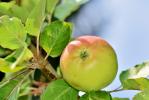
LIFE Project: Microalgas with Aromatic Plants as Biostimulants with Biocidal Effect
- Type Project
- Status Filled
- Execution 2019 -2023
- Assigned Budget 1.276.642,00 €
- Scope Europeo
- Autonomous community Asturias, Principado de
- Main source of financing LIFE
- Project website Web del proyecto
The LIFE ALGAR-BBE project focuses on demonstrating the effectiveness of three safe, sustainable, and naturally derived formulations with biostimulant and biocidal action to mitigate the adverse effects on the environment and human health of chemical pesticides currently used in tomato and corn crops.
Pesticide residues in food are a widespread risk. 40% of EU food contains residues, and at least 75% of the pesticides used each year are applied in agriculture. The largest volume of pesticides sold in the EU is in Spain: in 2016, 77 tons were sold, half of which were fungicides and almost 20% herbicides. Sampling of food products has shown that Spain and Portugal are two of the countries with the highest maximum levels of pesticide residues, with more than 3% of samples exceeding the legal limit.
Pesticides should be lethal only to pests, but they have harmful consequences for human health and the environment. According to the World Health Organization, pesticides are linked to diseases such as Parkinson's, asthma, depression/anxiety, cancer, and attention-deficit/hyperactivity disorder. Pesticides easily contaminate the air, soil, and water, harming overall soil biodiversity and nitrogen fixation, killing bees and other animals. They can also move up the food chain and accumulate in other organisms.
To reduce the adverse effects on the environment and human health of chemical pesticides used in tomato and corn crops by demonstrating the effectiveness of at least three biostimulant formulations based on microalgae biomass, with biocidal activity derived from aromatic plant extracts, which would allow the replacement of pesticides (insecticides and fungicides) used in these crops.
- Effectiveness of three biostimulants formulated from microalgae biomass with biocidal activity derived from aromatic plant extracts, allowing the replacement of pesticides used in these crops.
- Replication potential, for which a Good Practices Manual was developed to explain how the fertilizers developed within the framework of the project should be applied to corn and tomato crops, based on the experience acquired.
- Development of a new commercial product, based on the successfully demonstrated formulations, which should soon enter the market.
- Coordinator/entity name: Maria Alvarez
Postal address: Carmen Leal Mata, 191, 33211, Gijón
The LIFE ALGAR-BBE project has demonstrated the efficacy of three safe, sustainable, and naturally derived formulations with biostimulant and biocidal properties. The biostimulant properties were achieved through the addition of microalgae, while the biocidal properties were achieved through the addition of aromatic plant extracts, Spirulina extraction waste, and olive oil industry residues. A sufficient volume of concentrated biomass (20% microalgae) of the species Nannochloropsis gaditana (49 kg | 288 liters of wet biomass) and Acutodesmus obliquus (20.6 kg | 200 liters of wet biomass) was produced and optimized to serve as raw material for the production of the new fertilizers. Three formulations containing aromatic plant extracts were developed and optimized: one for root application, one for foliar application, and one for home application.
The demonstrative nature of the project has been based on the application of formulations produced from microalgae and aromatic plants, considering the dual function on crop production (as a biofertilizer and a biocidal product), at pilot scale in experimental plots of tomato, corn, pepper and potato crops located in Spain, and at real scale (industrial) in tomato and corn plots located in two locations (Extremadura and Portugal), during 3 different growing seasons over 3 years. In each location, the trials have been carried out on an area of 3 ha for tomato crops and 3 ha for corn crops, and 1 ha in each case for pepper and potato crops.
Crop yields have generally improved by applying, alongside conventional fertilizers, formulations containing aromatic plant extracts at different concentrations, applied foliarly at 3 l/ha at four key stages of the crop, depending on the phenology: during growth, flowering, fruit set, and fruit fattening.
Some of the main findings have been:
- The ecotoxicological evaluation of the formulations revealed no symptoms or signs of phytotoxicity. No negative effects on beneficial organisms were observed at any of the sites.
- Nitrate concentrations in the soil solution decreased and reducing nitrogen fertilization between different plots resulted in a decrease in nitrate concentrations.
- The use of the formulations developed in the project led to a reduction in pesticide residues in leachate water.
- Sustainable management has been achieved, focusing exclusively on the area of agricultural soil free of residues, which represents 93.2% of the total area tested.
- Crop yields improved with the application of formulations containing microalgae and aromatic plant extracts. Plant development was greater in plots treated with foliar applications containing a higher percentage of aromatic plant extract.
- In terms of pest and disease prevention, the formulations have proven effective, as the application of chemical pesticides during cultivation has not been necessary. This means that the developed formulations can reduce the use of traditional fertilizers and replace the chemical pesticides used in agriculture.
- No pesticide residues were detected in either the tomato or corn produced during the seasons studied. Therefore, the use of chemically derived active ingredients was correct, and the field application of the new formulations fulfills its objective from a food safety perspective.
- Fewer pesticides and higher yields can result in savings in input costs, as well as lower labor and machinery costs associated with pesticide application.
- NEOALGAE MICRO SEAWEED PRODUCTS SL
- ENDESA(ENDESA GENERACIóN, S.A.)
- CTAEX(CENTRO TECNOLóGICO NACIONAL AGROALIMENTARIO EXTREMADURA)







